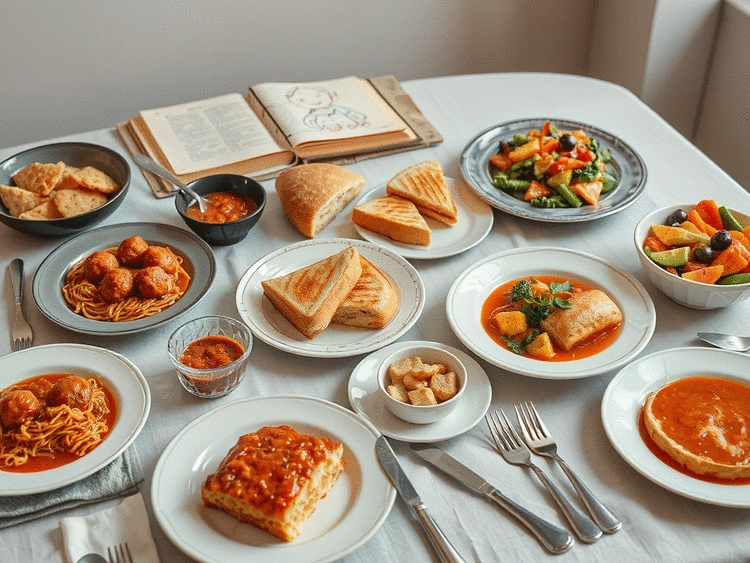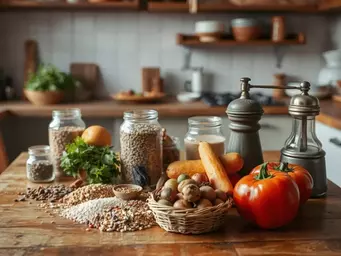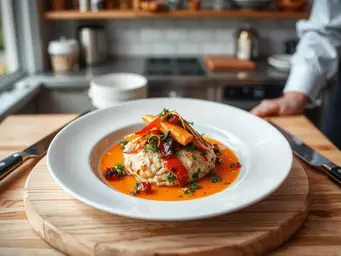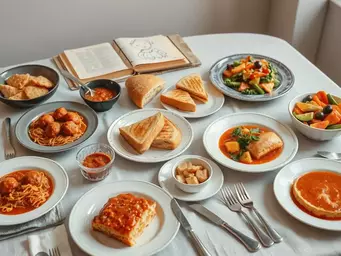Reflecting on our emotional connections to food can uncover powerful insights into our culinary identities. How do your favorite childhood dishes shape your current tastes and experiences? Let's explore what you will learn from this exploration.
What You Will Learn
- The deep emotional connections we have with childhood foods often shape our culinary identities and experiences.
- Nostalgia plays a crucial role in food memory, allowing us to recall significant moments tied to certain dishes.
- Emotional eating is influenced by our feelings, with stress and happiness dictating our food choices during different times.
- Parental influence and feeding practices significantly impact children's emotional relationships with food from a young age.
- Creating positive food memories can foster healthy relationships with food for future generations.
- Engaging with personal food histories enriches our culinary journeys and strengthens community bonds through shared experiences.
- Establishing food-related rituals can create lasting emotional connections within families and communities.
The Emotional Tapestry of Childhood Food Memories
This visual explores the intricate connections between childhood experiences, emotions, and our relationship with food. It's a fascinating area where personal history and psychological triggers intertwine to define our culinary preferences and habits.
Psychology Behind Food & Memory
- Nostalgia: Recalls happiness, triggered by flavors/smells.
- Memory Recall: Familiar dishes bring back vivid memories.
- Emotional Resonance: Evokes comfort & security.
Role of Emotional Eating
- Stress Eating: Coping with difficult emotions through food.
- Happy Associations: Foods enhance well-being during joyous moments.
- Social Influences: Friends & family shape emotional food responses.
Science of Food Psychology in Childhood
- Sensory Memory: Dish recall based on sight, sound, smell.
- Preference Development: Early exposure shapes lifelong likes/dislikes.
- Emotional Associations: Feelings linked to food affect habits.
Creating Positive Food Memories
- Family Cooking: Builds skills & bonds.
- Heirloom Recipes: Share stories & heritage.
- Food Rituals: Reinforce comfort & love.
Understanding Emotional Connections to Childhood Foods
As we dive into the world of food, it’s essential to explore how deeply our emotional connections to childhood dishes shape our culinary experiences. These connections often stem from our memories and the feelings they evoke, reminding us of family dinners, the warmth of a loved one’s kitchen, or even the anticipation of a special treat. The intricate tapestry of flavors we grew up with is woven into our identities, influencing not just what we eat, but how we feel about food!
The nostalgia we associate with certain meals can transport us back in time, making our favorite dishes a powerful vehicle for memory recall. Have you ever found yourself reminiscing about a comforting bowl of macaroni and cheese after a long day? That’s the magic of emotional food connections—each dish tells a story, a thread in the fabric of our lives.
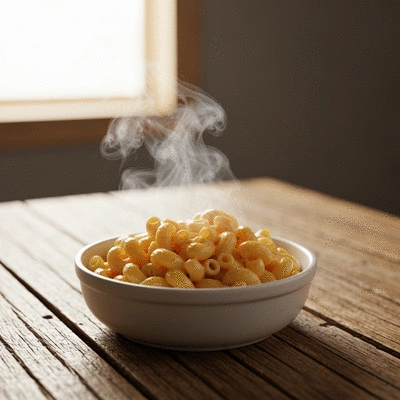
The Psychology Behind Food and Memory
When we think about the psychology of food, it’s fascinating to recognize the mechanisms at play. Emotional connections to our favorite childhood dishes are often influenced by nostalgia, which is intertwined with our ability to recall specific memories. Studies show that the brain’s limbic system, responsible for emotions, is also key in memory formation. This means that the flavors and scents that fill our memories are not just tastes; they are emotions wrapped in a sensory experience! To delve deeper into how our brains process these connections, read more about emotional food memories and eating.
- Nostalgia: This feeling can be triggered by specific flavors or smells, recalling moments of happiness.
- Memory Recall: Familiar dishes often bring back vivid memories of family gatherings or special occasions.
- Emotional Resonance: The food we loved as children can evoke feelings of comfort and security.
Reflecting on these elements allows us to appreciate the emotional weight our favorite dishes carry. They are more than just meals; they are reminders of who we are and where we come from!
The Role of Emotional Eating
Emotions can significantly influence our eating behaviors, especially during childhood. Factors such as stress and happiness play pivotal roles in the foods we choose to comfort ourselves. For instance, when we feel happy, we might gravitate towards celebratory foods—think birthday cakes or family feasts. Conversely, during stressful times, we might seek solace in familiar snacks, perhaps a bowl of ice cream or a plate of fries.
- Stress Eating: Choosing comfort foods as a way to cope with difficult emotions.
- Happy Associations: Foods tied to joyful moments can enhance feelings of well-being.
- Social Influences: Friends and family can shape our emotional responses to various foods.
This emotional eating can create lasting habits that follow us into adulthood, illustrating the need to foster healthy connections to food early on!
The Science of Food Psychology in Childhood
Diving deeper into food psychology reveals a fascinating relationship between food, emotion, and childhood experiences. Research has shown that our early interactions with food can shape our preferences and emotional responses later in life. For example, sensory memory plays a crucial role in how we connect with certain dishes. The sights, sounds, and smells of mealtime create lasting impressions on our psyche, influencing our future food choices.
- Sensory Memory: The ability to remember a dish based on its sensory attributes.
- Development of Preferences: Early food exposure can lead to lifelong likes and dislikes.
- Emotional Associations: The feelings we attach to food can affect our eating habits throughout life.
Understanding these connections empowers us to cultivate healthy relationships with food, shaping a future generation that appreciates the emotional narratives behind their meals.
Parental Influence and Feeding Practices
Our food experiences start at home, making parental influence a crucial aspect of how we relate to food. Parenting styles can deeply affect children's emotional regulation and attachment to various foods. Whether it's strict rules around eating or a more relaxed approach, these practices form the foundation of our future interactions with food! For more insights into how culinary traditions are passed down, explore reviving regional food traditions today.
As I reflect on my own journey with food at Born Foodie, I appreciate how my family’s unique feeding practices shaped my culinary outlook. Let’s explore how these influences manifest in our relationships with food.
Pro Tip
To strengthen emotional connections with food, try sharing your culinary heritage with your children. Cook traditional family recipes together and share the stories behind them. This not only enriches their understanding of food but also creates lasting memories that they can cherish for a lifetime!
Reflecting on the Impact of Favorite Childhood Dishes
As we delve into the emotional landscape of our favorite childhood dishes, it's essential to think about how we can create positive food memories for future generations. Food isn't just about sustenance; it's a canvas for experiences and emotions. By fostering healthy relationships with food in our children, we can help them build a foundation for lifelong well-being and appreciation of culinary traditions.
One way to do this is by involving children in the kitchen. Cooking together not only builds skills but also nurtures bonds. Have you ever noticed how a simple meal can turn into a cherished memory when shared with loved ones? It’s in these moments that we pass down the flavors of our heritage.
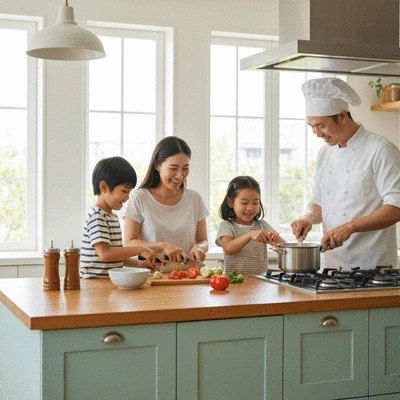
Creating Positive Food Memories for Future Generations
- Encourage family cooking nights where everyone pitches in.
- Share stories behind heirloom recipes while preparing them together.
- Introduce kids to the farms and markets where ingredients come from.
- Celebrate food-related rituals during holidays and special occasions.
As parents, we have the opportunity to build emotional connections around food. By creating and sharing these experiences, we enrich our children’s lives and instill a sense of cultural identity. Remember, every dish has a story, and it’s our job to help them discover that narrative.
Engaging with Your Food History
Reflecting on our personal food histories can be immensely gratifying. I invite you to pause and think about your favorite childhood dishes—what do they mean to you? How have they shaped your current eating habits? Sharing these memories can be a wonderful way to connect with others who have similar experiences. At Born Foodie, we celebrate these stories as a vital part of our culinary narrative.
- Consider starting a food journal to document your favorite dishes.
- Engage with family members to collect recipes and stories.
- Join cooking classes or workshops that focus on traditional cuisines.
- Host gatherings where everyone brings a dish that holds special meaning.
Your experiences are valuable not just for you, but for the community of food lovers we’re building together. The connections we make through food can be profound, shaping not just our palates but our identities as well.
Food-Related Rituals and Their Significance
Food-related rituals often serve as the backbone of our childhood memories. These traditions, whether it's a family dinner every Sunday or a special treat on birthdays, create a framework of comfort and love. Such rituals can strengthen emotional bonds within families and communities alike. To understand more about the deep-seated emotional ties found in culinary experiences, consider exploring emotional ties in signature dishes.
- Establish recurring family meals to reinforce connections.
- Participate in local food festivals that celebrate community traditions.
- Incorporate storytelling into meals, sharing the history behind dishes.
- Encourage children to create their own food rituals, fostering creativity.
As we reflect on these rituals, let’s remember that they are more than just meals; they are experiences that shape our emotional landscape. We need to cherish and preserve these practices, ensuring they live on in our future generations. What rituals have you created around food, and how do they enrich your life?
Frequently Asked Questions (FAQs)
- Q1: How do childhood food memories influence our adult eating habits?
- A1: Childhood food memories often create strong emotional connections that shape our culinary identities and preferences. These early experiences, linked to feelings of comfort, security, or celebration, can influence our food choices and eating behaviors throughout our adult lives, often leading to nostalgic cravings or comfort eating.
- Q2: What is the role of nostalgia in our connection to food?
- A2: Nostalgia plays a crucial role by allowing us to recall significant moments tied to certain dishes. Flavors and smells can trigger vivid memories of happiness, family gatherings, or special occasions, turning food into a powerful vehicle for memory recall and emotional resonance.
- Q3: How does emotional eating relate to childhood food experiences?
- A3: Emotional eating, where food choices are influenced by feelings, often originates in childhood. Stress or happiness experienced during meals can lead to habits of seeking certain foods for comfort or celebration. These early patterns can establish lasting emotional responses to food.
- Q4: How can parents foster positive food memories for their children?
- A4: Parents can foster positive food memories by involving children in family cooking, sharing stories behind heirloom recipes, introducing them to where ingredients come from, and establishing food-related rituals. These practices build skills, strengthen family bonds, and instill a sense of cultural identity.
- Q5: Why are food-related rituals significant?
- A5: Food-related rituals, such as regular family dinners or special holiday treats, are significant because they create a framework of comfort and love. These traditions strengthen emotional bonds within families and communities, shaping our emotional landscape and providing lasting cherished memories.
Inviting Reader Interaction and Reflection
Sharing Your Childhood Food Memories
At Born Foodie, we wholeheartedly encourage you to share your childhood food memories! Whether it's a beloved dish your grandmother made or a unique family tradition, your experiences are what help create our vibrant community. Engage with us on social media or in the comments below—let’s celebrate our culinary journeys together!
Conclusion: Bridging Science and Personal Experience
In wrapping up this exploration of emotional connections to food, it’s clear that understanding these ties is vital for our well-being. As we navigate our own food journeys, I invite you to reflect on how your childhood dishes have influenced you. Together, we can bridge the gap between science and personal experience, fostering a deeper appreciation of the culinary stories that feed our souls.
Recap of Key Points
Here is a quick recap of the important points discussed in the article:
- Emotional Connections: Childhood dishes evoke strong memories and feelings, influencing our culinary experiences.
- Nostalgia and Memory: Flavors and scents trigger nostalgia, connecting us to happy moments and family gatherings.
- Emotional Eating: Emotions play a significant role in our food choices, impacting our eating habits both during childhood and adulthood.
- Parental Influence: Parenting styles shape children’s emotional responses to food, establishing future eating behaviors.
- Creating Positive Food Memories: Engaging children in cooking fosters healthy relationships with food and cultural appreciation.
- Food-Related Rituals: Establishing family traditions around food strengthens emotional bonds and creates lasting memories.
- Reflection on Food History: Encouraging sharing of childhood food memories connects individuals and enriches community narratives.
